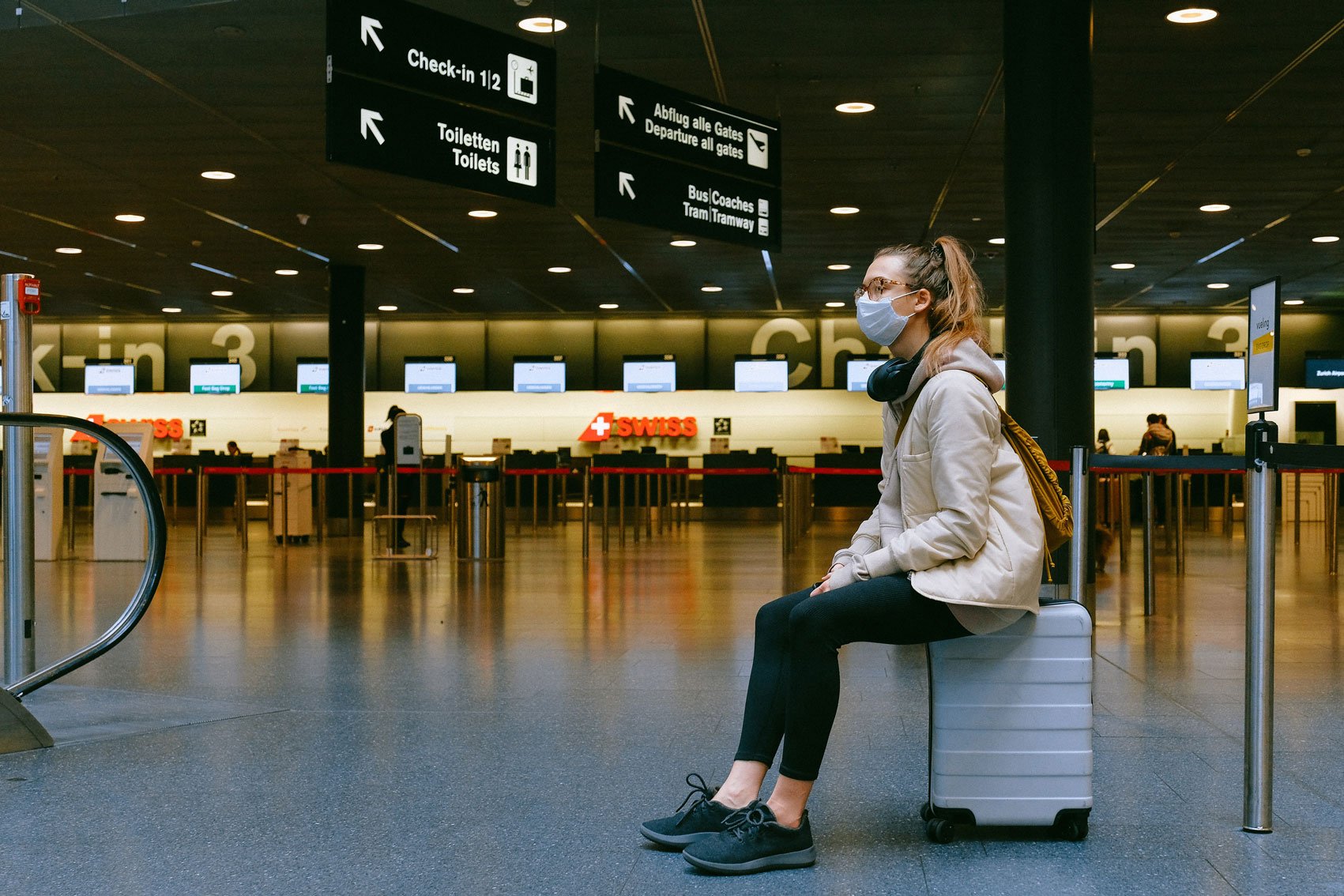Traveling During COVID-19: Here’s How
Feet itchy? Boots rusty? Suitcase empty?
We get it.
Even if it is a business or family trip rather than a vacation, it’s not completely safe out there yet. Here is a series of incremental don'ts to keep you safe.
The absolute essentials
When you are outside, consistently follow these three things:
● Clean your hands frequently using either a hand sanitizer with 60% or higher alcohol content or soap and water.
● Social distance protocol. Stay a minimum of 6 feet (2 meters) away from everyone.
● Always wear a mask when you are among others.
You might find yourself in situations that you do not have control over. Here is a series of preventive measures that could help you.
● Firstly, prefer to stay out of crowded spaces. If you do, ensure you wear a mask and are always 6 feet away from others.
● When you cough or sneeze, follow respiratory hygiene - sneeze into a tissue, or cover your mouth and nose with your bent elbow.
● You need to change your mask every 10 hours, carry enough spares for the entire trip.You don’t necessarily need medical masks - cloth masks will suffice, but ensure there are enough layers.
● Prefer contactless payment options at all junctures. Tap to pay Credit cards or online wallets are the way to go.
● Gloves aren’t necessary - they will become just as dirty as your hands later on. Use a hand sanitizer instead.
Preparing for your trip
Gone are the days where you book a ticket and wing the rest of the trip. A quick set of things to keep in mind before you plan your trip:
● Weigh the advantage versus the risk of each mode of transportation. While booking travel arrangements, pick odd hours when there is lesser foot traffic.
● Make a COVID inventory list. Essentials like hand sanitizers and masks go in without question, but also accommodate space for your own water bottles and a set of disposable, biodegradable cutlery.
● Be mindful of what you touch. We are forgetful beings and it is good to start practicing a couple of days before your trip.
● Do your research. Keep up to date on the latest information at your destination so that you are always prepared.
● If you are feeling uneasy about traveling, get tested for COVID-19 before your journey, especially if it is an international trip.
Modes of transportation
Different modes of transportation come with various risk factors. Contrary to popular belief, air transport is currently the safest method, but don’t discount the fact that you still have to get to and from the airport, and travel inside the city at your destination.
Paranoia around travel in airplanes is quite misplaced. You are mainly at risk of getting infected while boarding. Prefer getting the boarding pass from the machine and use contactless payment whenever possible. On booking tickets, “Choose a window seat as far from the restroom as possible,” says Dr. Farley Cleghorn, the global health practice head at Palladium, an international impact consultancy firm. And do not forget to disinfect your hands after you sit down and before touching your face.
If you are traveling by bus or train, pack your own linen. Disinfect high contact areas such as the armrest or handle with disinfectant wipes. It’s okay if you get awkward glances from your passengers.
A car is ideal for travel but comes with its own set of risks like when you stop for gas or grab lunch. Ensure increased ventilation by rolling down your windows, or turn on the AC. Here too, wipe down high touch areas such as the handlebar with a disinfectant wipe.
Eating out safely
Besides transport, this is the second biggest concern. If you have the option, carry your own food. But the likelihood of that is low, so the next safest option is either drive-in or takeaway.
If you absolutely must eat out, then bring your own water and cutlery. Find a restaurant which offers these:
● Open space with enough distance between tables.
● Availability of a digital menu (or check their Zomato page).
● Staff who wear masks at all times.
Staying at another city
All the horror stories about poorly maintained motels come to mind when you think of accommodation hygiene. Call ahead and ensure that you will be hosted by employers who provide pandemic support (Employees get paid leaves, daily temperature checks, enough sanitation supplies, etc.) This guarantees as safe an environment as possible. And remember, even if you are visiting family, it’s safer to stay at a hotel just in case. While there, wash your hands and keys every time you enter your suite.
Finally, prefer an isolated residence over bustling 5-star hotels. The fewer people there are, the better. All rooms at Hanu Reddy Residences are individually air-conditioned with lots of common open areas for you to lounge around.
Bonus tips
● Travel insurance mostly would not cover COVID-19, but check with your agent anyway.
● If you have the option, choose a CFAR (Cancel for any reason) policy.
● When in a situation where a stranger is too close for comfort, move away. If you can’t, politely ask them to give you some space. You are in a new city for a good time, don’t ruin your evening over it.
● It’s best to have a contingency plan. In case you get sick, make sure you have a plan in place to keep you and your loved ones safe.
We have tried to be as inclusive and exhaustive with our travel tips because we understand your need to spread your wings.
Travel safe, have fun, and hope to see you soon!


